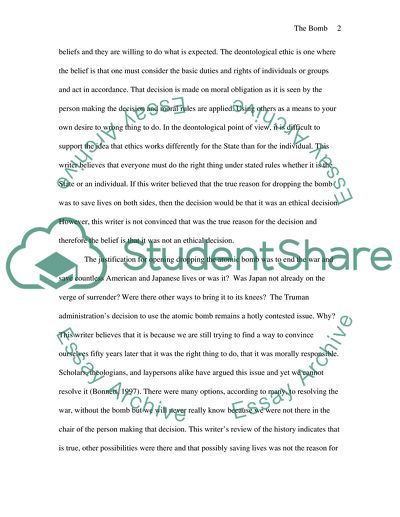Cite this document
(“Ethics and the Hiroshima Bomb Essay Example | Topics and Well Written Essays - 1000 words”, n.d.)
Retrieved from https://studentshare.org/social-science/1560792-see-below
Retrieved from https://studentshare.org/social-science/1560792-see-below
(Ethics and the Hiroshima Bomb Essay Example | Topics and Well Written Essays - 1000 Words)
https://studentshare.org/social-science/1560792-see-below.
https://studentshare.org/social-science/1560792-see-below.
“Ethics and the Hiroshima Bomb Essay Example | Topics and Well Written Essays - 1000 Words”, n.d. https://studentshare.org/social-science/1560792-see-below.


